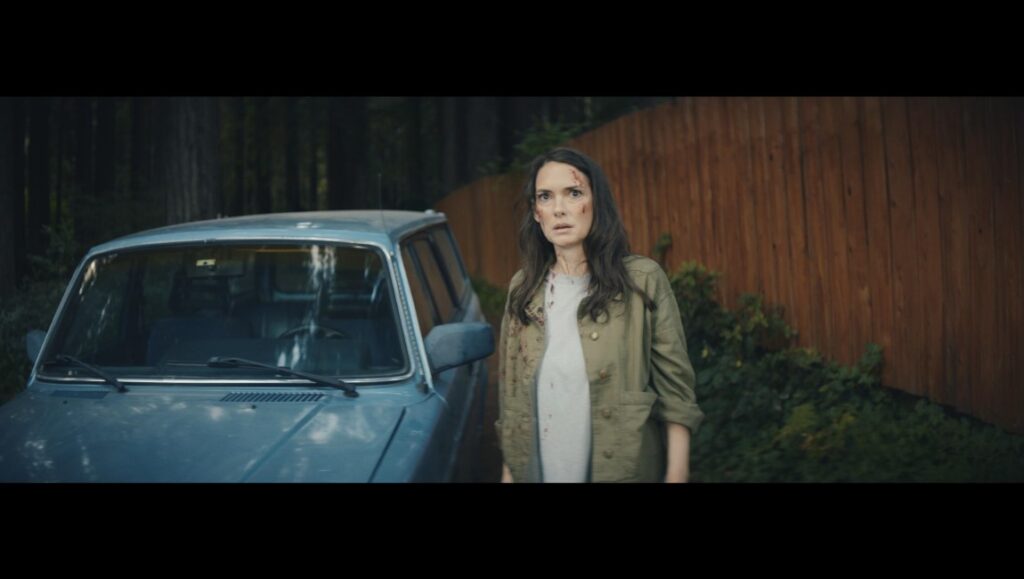Gone in the Night is a slog undone by its own structural conceit, confining its compelling material to flashbacks and riding a wave of dull inertia the rest of the time.
Co-creating and writing the podcast series Homecoming, Eli Horowitz was once near the vanguard of the fiction podcast movement. His wasn’t the first or even the only one at that time, but the show arrived in a moment when reviving a sort of radio play format to tell audio thriller stories was still novel, if not really much more formally interesting than a well-cast audiobook. Homecoming was certainly one of the form’s biggest successes, though, making the leap to an Amazon TV series and bringing Horowitz along with it. He seems content to stay in less niche entertainment territory now, and has made his feature debut with the much less novel thriller Gone in the Night, a Winona Ryder-starring mystery that could probably benefit from anything to differentiate it.
Ryder stars as Kath, a reserved professional woman who heads into the woods for a weekend getaway with her manchild boyfriend. When they arrive at the cabin they’ve rented, though, it’s already occupied by a strange, younger couple. After staying the night anyway, Kath awakes to find her boyfriend gone, run off with the younger woman, so the distraught other man informs her. She tries to move on, but the nagging sensation makes her seek out the woman for closure.
Obviously, there’s more to the situation here than meets the eye, communicated via the dread-filled atmosphere that Horowitz tries to work into every scene. But instead of putting Kath in gumshoe mode, the film uses flashbacks to parcel out unseen details of the mystery it’s telling. Kath is largely an inactive character without much motivation. Once she meets the owner of the cabin (Dermot Mulroney), her portion of the film settles into the light rhythms of a drama, the pair talking about their romantic lives, his health issues, and whatever else, the older man imparting wisdom whenever he can. Meanwhile, the flashbacks feel like a different, more dangerous film full of intrigue and disquiet. When the two parts converge in the film’s climax, the viewer knows what Kath is stepping into, making for the film’s most effective section, which takes a half-baked, contrived science fiction premise and mines it for a pretty good standoff.
Unfortunately, getting to that point proves a tough sit, as watching Kath’s inertia is rarely as compelling as the unfolding mystery. Ryder and Mulroney give good, down-to-earth performances as two people bonding over their respective hard times, but the inactivity of their portions of the film, combined with all of the most compelling material being confined to flashbacks, only lends the film a sense of dull inevitability until the convergence at the end. The result is a slog undone by its own structural conceit.
Originally published as part of SXSW Film Festival 2022 — Dispatch 5.


Comments are closed.